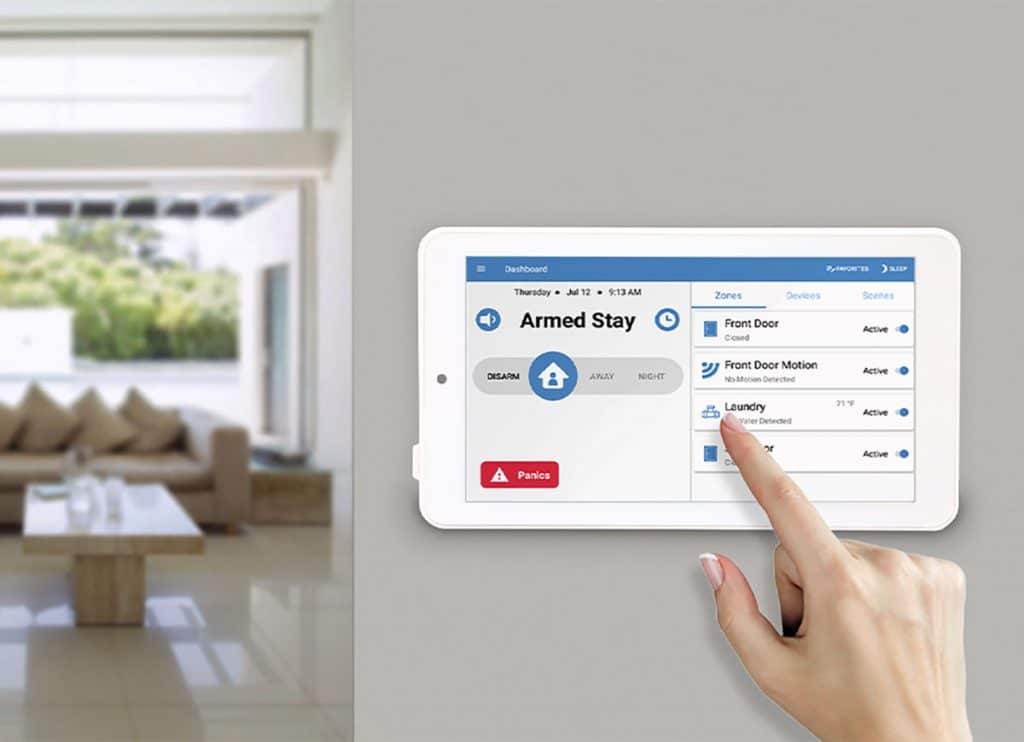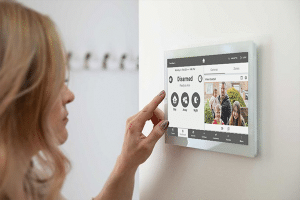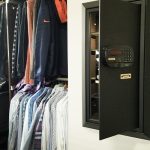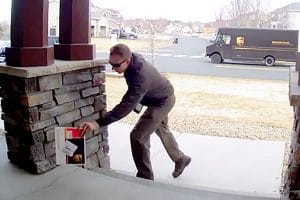Your cart is currently empty!
Category: Homeowner Tips
-

6 Things to Add to Your Moving Checklist
Summer is quickly approaching and some of you will be moving into your new home in a matter of weeks.
We know moving can be stressful, especially if you’re buying or selling your home. So every effort you can make to prepare for moving day will be worth it.
Here are 6 things to check off your list before you pull up to your new place
1. Change Your Address
The United States Postal Service offers a simple online process for changing your mailing address. There’s no need to wait in long lines or fill out pages of forms. You simply register on their website and they handle the rest. While you’re updating your address, remember to reach out to your insurance company, banks, credit card company and doctor’s office to let them know of your new mailing address.
2. Records Transfer
If your move isn’t local, you may need to transfer your family’s records. Your children’s school records should be transferred, as well as any doctor’s records reflecting their vaccination history. If you’re changing veterinarians, you should also request to transfer your pet’s records to the new clinic. Asking for copies of records or an automatic transfer before you move will make it easier to adjust when you arrive in your new neighborhood.
3. Moving Appliances
No matter how far you’re going, moving appliances requires a great deal of planning. In the weeks leading up to your move, try to use up all of the frozen food and perishable items from your freezer and refrigerator. And defrost your freezer at least 24 hours before your move. Remember, most moving companies do not disconnect or connect your appliances, so have them serviced within a few days of your move so they’ll be ready to go. Check back later this week for 3 more tips on making your move a smooth transition.
4. Car Registration
In Georgia, you have a 30-day grace period in which to register your vehicle but you must have a Georgia state license & acceptable insurance to do so.
5. Transfer Your Utilities
Make sure to transfer all of your utilities such as your gas, electricity, water, garbage, sewer, telephone, internet, cable, and your home security alarm services. To set up or transfer home security services, simply call us at 770.963.0305.
6. Pack Essentials
Nothing kills the buzz of your new home than not having toilet paper. Pack essentials like paper products, snacks, your toothbrush and phone chargers in a clearly labeled box. Keeping these close will make the transition to your new place much smoother.
A safe home is a happy home. Set up your home security system and/or a few security cameras today!
-

Safety Tips When Selling Your Home
Placing your home on the market shouldn’t result in increased risks to home security.
In fact, it’s in situations like this when you should amp up your protection even more. Why? Because when a real estate agent invites potential buyers into your home, their primary concern is selling your home, not with your valuables.
There have been many reports of homeowners being burglarized shortly after allowing prospective buyers inside. In these burglaries, small but expensive items such as jewelry and watches have been stolen.
If you are placing a house on the market now or in the future, EMC Security can help you protect your home in more ways than one. For instance, did you know that you can set your alarm keypad to grant access to certain people during specific times of the day? Want to monitor the activity inside your home from across town or while you’re at work? We’ve got you covered! Here are a few security tips to help you have a safer home selling experience:
1. Give Guest Code Authorization to Realtors
If you have an alarm system, avoid giving out your main security code (and if you don’t have a burglar alarm, get one!). Many modern systems allow you to program guest codes, some of which even make those codes usable only during certain times and on certain days. Requiring guests to use codes allow you to limit access to your home and can keep a log of when specific codes were used to enter your home. Assigning unique passwords to realtors also helps create an added sense of responsibility on the part of the realtor. Need help with this feature? Contact EMC Security at 770.963.0305 to check compatibility from one of our security experts.
2. Obligate Realtors to Re-arm Your System Before Leaving
In addition to ensuring certain that all doors are properly secured and locked, make it a requirement that realtors reactivate your system prior to leaving your home. It’s also a good idea to document your request with the broker by giving them written instructions pertaining to your request. Taking such strong precautions could mean the difference between your home being protected as opposed to being burglarized.
3. Use Indoor Home Surveillance Cameras
Whether hidden or placed in plain sight, surveillance cameras are a deterrent to theft and can be invaluable to protecting your property. In the worst-case scenario, they can provide evidence to police in the event of a crime. Some security cameras will even allow you to remotely monitor your home while away.
4. Check Your Windows
Even if you’ve instructed your realtor to check/lock your windows after each visit, it’s still recommended that you double check to ensure that all entry points to your home have been secured upon your return. Crafty burglars will sometimes unlock windows or doors with plans of returning later to execute their plan for theft. Also, a realtor may simply forget to secure one of these, so it is always a good idea to manually check yourself as soon as possible.
5. Remove or Secure Valuables
Don’t neglect to secure your valuables, such as money or jewelry when listing your home for sale. It’s not enough to simply place jewelry in a designated box or video games in a cabinet, as strangers will be allowed to roam throughout your home and may stumble upon these areas. If you don’t already own one, consider a wall safe or even removing them during open house visits.
Need a security system? Give EMC Security a call at 770.963.0305 or check out our website on how to customize the best home security system for your needs today.
-

Protecting Your Home During Summer Vacation
Summer-time is fast-approaching which usually means that millions of families are gearing up for their traditional summer vacation.
If you are among those who are planning to travel away from home for a summer vacation, here are a few tips to help guarantee that your home security remains in tip-top shape during your time away from home.
Ask A Friend or Neighbor to Perform Daily Checks of Your Home
One thing that you could do is to ask close friends and family to either house sit while you are away, routinely check for mail, water the plants and to make the house appear as active as possible during your time away.
Stage Your Home to Look Occupied
If you leave blinds open at the front of the house when you are living there, stick to that routine when you are away. It is a good trick to alternate between rooms in the front and the back in case any potential burglars are looking to see if anyone is home. Use fake TV switches to activate your television as night arrives to give the perfect appearance of a working television set behind the blinds and curtains.
Upgrade Your Alarm System
Lastly, just before departing for a summer holiday where you’ll be away from home for a week or two, take time to conduct a thorough review of your home security system, including the strength of all doors and windows, locks and your current alarm system.
The last thing you want when going away on holiday is to worry about your home. Put in place a strict check of your home before setting off for vacation, and upgrade alarm systems and other home security processes if necessary.
EMC Security has a range of products and advice that can help you. To learn more about our smart tech security and other solutions, contact us today. We will be glad to answer your questions!
-

Thieves Never Check These Hiding Places
No one ever expects to get robbed, but it certainly doesn’t hurt to be prepared. Your home is actually full of secret hiding spots thieves will never consider looking.
Let’s just admit that we all have the habit of stashing our most valued possessions in common places that are easy to spot. In fact, burglars are experts who have years of experience and know exactly where to find these items. Avoid keeping your items in the prime spots like your master bedroom, bedroom closet, desk drawer in your study room, your jewelry box, or the cabinet in the hallway. These are the most common places where burglars search for these items. However, there are plenty of creative ways to hide your valuables and trick burglars — after all, they are humans too!
Here are 6 clever places to hide your valuables in your home:
1) Library or a Study Room
Home library or office room with bookshelves. This is an excellent spot to stash your valuables, especially if you have lots of books. It becomes a tedious task for thieves to search between the books, especially when they only have a short amount of time to pull off the theft.
2) Garage
Most homeowners have a garage or a storage room as a part of their houses. And while most homeowners tend to dump old stuff in these areas, such as spare boxes and paint cans. However, you can empty and clean some of the discarded boxes and hide your valuable items inside them. Research shows that this is one of the least expected places to find valuables, so burglars won’t suspect it.
3) Safe or a Locker
Keeping a personal safe or a lock box in your home is a fantastic idea. You can store your important documents, your expensive jewelry or any other valuable item inside it. Make sure that it meets insurance standards. If possible, keep it in a less obvious place, other than your bedroom.
4) Kitchen cabinets and appliances
Have you ever thought of choosing kitchen cabinets or appliances as a hiding place? It’s a clever idea to use food boxes as a secret cash stack. Considering the fact that your kitchen is full of food boxes and other containers, you can randomly pick and select somewhere to stash your cash to keep it safe from thieves. Burglars won’t even think of checking these boxes.
5) Kid’s room
There are other unsuspecting rooms that you can use to keep your valuable possessions. Although the bedroom is the most expected room burglars go for, a kid’s room is usually not considered, and therefore, never searched. Try to find clever spots within your kid’s room and hide your valuables creatively.
Conclusion
Unless you invest in a home security system (and sometimes even if you do), it’s not possible to protect every item in your home. In short, do what you can to make your home a difficult, inconvenient, and time-consuming target that will deter a would-be burglar.
EMC Security is a home security installer based in Georgia that specializes in home automation security solutions. If you are looking for a complete smart security solution for your home, you can schedule a consultation call with one of our experts. We are happy to discuss your needs and provide you with the best solutions.
Get Started Today!
Complete and ↗️submit this form and an EMC Security specialist will follow up.
-

Attic Storage Tips
According to the US Fire Administration, over 10,000 attic fires a year are reported to US Fire Departments.
The majority of these fires are caused by electrical malfunction (created by faulty wires and ignition sources) and natural causes (such as lightning, which we reported last summer.) How do you take steps to mitigate the possibility of a dangerous fire in your home’s attic? We’ve got some tips here:
Don’t Store Flammable Liquids in the Attic
Volatile solvents such as paint, turpentine, cleaning products, gasoline, propane, kerosene or other hazardous chemicals don’t belong in an attic. Due to variances in insulation, extreme temperature swings occur in attics, which causes expansion and contraction of objects and liquids. This can cause combustion. All hazardous chemical liquids should be properly discarded—see the bottle label for exact details—or stored somewhere away from an ignition source.
Don’t Trust Your Treasures to the Attic Space
Valuable or sentimental papers, clothes
and toys are hard to toss, but they’re highly combustible fuel for a fire–especially if it’s a lightning strike, which is common in Georgia during thunderstorm season. All too often these items are stored in cardboard boxes, which not only burnfaster, but also attract insects such as termites or silverfish. If you can’t reduce, reuse or recycle, take a picture of the items as a keepsake.Clothing Storage Is Fine, with a Few Precautions
Never store fur or leather in an attic; the heat will damage the leather, and the fur will attract other furry creatures. Store other clothing in vacuum-sealed storage bags, and then place the bags in a plastic trunk, tote or portable closet. Plastic will burn, but it has a higher flash point than cardboard and provides some protection against smoke and water damage.
What Else Is Ok for the Attic?
Your empty suitcases are safe to store in the attic; they’re lightweight and not likely to combust. Lightweight holiday decorations are fine if they’re stored in plastic tubs, with one caveat; don’t store candles in the attic, unless you want to become the “House of Wax.” Off-season athletic equipment, if it’s not heavy, is fine too. Remember to store items only on step-secure flooring, or you could end up in the living room.
Want to make sure your entire home is covered for fire and smoke monitoring? At EMC Security,fire monitoring is part of our basic services.
-

Holiday Fire Prevention Tips for Your Home
Holiday Lights
- Maintain Your Holiday Lights
Inspect holiday lights each year for frayed wires, bare spots, gaps in the insulation, broken or cracked sockets, and excessive kinking or wear before putting them up. Use only lighting listed by an approved testing laboratory.
- Do Not Overload Electrical Outlets
Do not link more than three light strands, unless the directions indicate it is safe. Connect strings of lights to an extension cord before plugging the cord into the outlet. Make sure to periodically check the wires – they should not be warm to the touch.
Do not leave holiday lights on unattended!
Holiday Decorations
- Use Only Nonflammable Decorations
All decorations should be nonflammable or flame-retardant and placed away from heat vents. If you are using a metallic or artificial tree, make sure it is flame retardant.
- Don’t Block Exits
Ensure that trees and other holiday decorations do not block an exit way. In the event of a fire, time is of the essence. A blocked entry/exit way puts you and your family at risk.
- Never Put Wrapping Paper in the Fireplace
Wrapping paper in the fireplace can result in a very large fire, throwing off dangerous sparks and embers that may result in a chimney fire.
Candle Care
- Avoid Using Lit Candles
Consider using battery-operated flameless candles, which can look, smell and feel like real candles.
- If You Do Use Lit Candles
Make sure candles are in stable holders and place them where they cannot be easily knocked down. Keep candles at least 12 inches from anything that can burn. Never leave a room or go to bed with candles burning.
- Never Put Lit Candles on a Tree
Do not go near a Christmas tree with an open flame – candles, lighters or matches.
Please never underestimate the power of having fire and smoke detectors as a part of your security system. Fire and smoke monitoring is a service provided whether the customer’s security system is armed or disarmed.
For more details on how to add fire monitoring to your home, please contact an EMC Security representative at 770-963-0305.
All EMC Security customers receive fire monitoring at no additional cost.
-

How to Prevent Stolen Packages
We’ve had many reports of stolen packages from porches lately. This type of crime has been increasing by the day – even more since the pandemic has changed buying habits and more consumer goods are being shipped than ever before.
So, how do you protect your packages so you’re not a victim?
The #1 way to protect against this type of crime is to have an extra set of eyes to watch your back with a video doorbell. The image below is footage from a video doorbell. It’s crisp and clear, time stamped, and sent to your mobile phone instantly.
A Video Doorbell allows you to see and hear exactly who comes to your door, no matter where you are. Even if they don’t ring the doorbell, the PIR (passive infrared) sensor will detect human activity and alert you on your mobile device. With 2-way audio, you can speak with whoever is at the door, watch live video, and store clips.
Another great deterrent is an installed Outdoor Cameras. Studies have shown that burglars are much less likely to target homes with visible security cameras, and the outdoor camera looks the part. It features infrared night vision, so you can see what’s happening at your front door, back entrance, or garage, no matter what. If something is detected, you’ll get notified on your mobile device.
What else can you do?
- First, if possible, become friendly with the people that deliver to your house and let them know where you prefer to have your packages left – like, for instance, behind the potted plant, or by your back door.
- Purchase a package locker or lockbox for your front porch, so your delivery person can lock your holiday gifts safely inside until you get home.
- And don’t forget to post a sign mentioning that your home is under surveillance!
Learn more about EMC Security’s camera options here, and don’t forget to check out the rest of our smart home innovations!
-

How to Stay Safe When Your Home is On the Market
It’s in situations like selling your home when you should amp up your protection more than usual. Why? Because when a real estate agent invites potential buyers into your home, their primary concern is selling your home, not protecting your valuables.
If you are placing a house on the market now or in the future, EMC Security can help you protect your home in more ways than one. For instance, did you know that you can set your alarm keypad to grant access to certain people during specific times of the day? We’ve got you covered! Here are a few security tips to help you have a safer home selling experience:
1. Give a Guest Key Code to Realtors

If you have an alarm system, avoid giving out your main security code (and if you don’t have a burglar alarm, get one!). Many modern systems allow you to program guest codes, some of which even make those codes usable only during certain times and on certain days. Requiring guests to use codes allow you to limit access to your home and can keep a log of when specific codes were used to enter your home. Need help with this feature? Contact EMC Security at 770.963.0305 to check compatibility from one of our security experts.
2. Obligate Realtors to Re-arm Your System Before Leaving
In addition to ensuring certain that all doors are properly secured and locked, make it a requirement that realtors reactivate your system prior to leaving your home. It’s also a good idea to document your request with the broker by giving them written instructions pertaining to your request. Taking such strong precautions could mean the difference between your home being protected as opposed to being burglarized.
3. Use Indoor Home Security Cameras
Whether hidden or placed in plain sight, security cameras are a terrific deterrent to theft and bad behavior and can be invaluable to protecting your property. An indoor camera from EMC Security is just $79 and is a worthwhile invesment. You can check in live, view clips of motion detected, and store video.
4. Check Your Windows
Even if you’ve instructed your realtor to check/lock your windows after each visit, it’s still recommended that you double check to ensure that all entry points to your home have been secured upon your return. Crafty burglars will sometimes unlock windows or doors with plans of returning later to execute their plan for theft. Also, a realtor may simply forget to secure one of these, so it is always a good idea to manually check yourself as soon as possible.
5. Remove or Secure Valuables
Don’t neglect to secure your valuables, such as money or jewelry when listing your home for sale. It’s not enough to simply place jewelry in a designated box or video games in a cabinet, as strangers will be allowed to roam throughout your home and may stumble upon these areas. If you don’t already own one, consider a wall safe or even removing them during open house visits.
Need a security system? Give EMC Security a call at 770.963.0305 or check out our website on how to customize the best home security system for your needs today.
-

What to do if You Hear Someone Breaking Into Your House
We all get shaken a little when the alarm is triggered – even if it’s a false alarm – right? But if it’s an actual break-in, and you’re there, it’s serious.
No matter what, don’t put yourself in danger. It’s a really bad idea to confront a burglar. You don’t know if they are armed or not
so try to make the safest decisions. Your job is to protect yourself and your family.Here’s how:
- Shh…BE QUIET! Don’t alert the intruder that you are in the house. At this point, the best plan
it to quietly find your phone so you can make some calls.
- If Your Alarm Panel is Nearby (assuming it wasn’t armed), Press the Panic Button. This will make the sirens to go off and will immediately alert the authorities that you need help. It could also scare the burglar off.
- Find a Way to Get Out of There. If you can escape safely, do it. Try and identify where the intruders are and then leave through a door or window as far away from them as possible.
- Lock Yourself in a Safe Room. If you can’t exit your home safely, then lock yourself in a room, barricade the door so that the burglar can’t enter even if they are able to unlock the door.
- Call the Police. If you don’t have a security system or can’t get to the panic button, make the call as soon as possible.
- Wait. Don’t leave the safe room until the police give the all-clear.
What If You Encounter the Burglar?
- Don’t be a Stupid-Hero. Let them take whatever they want as long as they leave you and your family alone. The sooner they get what they want, the sooner they’ll leave. Never try to stop a burglar from taking anything because you don’t want to trigger any violence.
- Don’t provoke them. This can be difficult when you are feeling violated. But don’t initiate physical violence to catch a burglar. Stay as far away from a burglar as possible. You should only fight back if you are attacked.
- Get a good look. As discreetly as possible, take mental notes of their physical features (height, build, hair, eye color, ethnicity, distinct markings) and mannerisms (accent, walking style) so you can provide the details to the police.
Knowing what to do during a home intrusion is vital to your safety and that of your family. By installing a home security system, you could avoid a frightening and potentially life-threatening situation. Contact EMC Security today for a quote and/or free home evaluation at 770.963.0305.
- Shh…BE QUIET! Don’t alert the intruder that you are in the house. At this point, the best plan
-

I’ve Been Robbed. What Do I Do?
If you’ve just suffered a home burglary you may simply be asking what do I do now?
Whether you’re in panic mode or you’re just not sure where to turn, learn what to do immediately after a home burglary, these tips will help you get through the process as quickly and painlessly as possible.
Step 1. Call the Police
The first thing you should always do after a home burglary is to call the police. If your security system was armed – triggering an alarm, we will contact the authorities for you.
- If you’ve left the house and/or you think the intruder may still be there: This is an emergency. From your locked car or a neighbor’s house, dial 911.
- Any delay to call the police could the lower their chances of catching the perpetrator and recovering your stolen items.
Step 2. Survey your property and possessions
Once the authorities arrive at your home, make a detailed and complete list of everything that has either been damaged or stolen. Include as many details as you can about each item and their value. Give this list to the police and save additional copies for your own records, as well as your insurance company.
It’s also a good idea to take photographs or provide video footage of your damaged property. It’s likely that you will need to provide proof to your insurance company of items that were taken or damaged in the process.
Step 3. Call your insurance company
Assuming you have insurance, you will need to file a claim within 24 hours of filing a report with the police, so it’s important to notify them as soon as you can. In most cases, a claim adjuster will come and inspect your home and any associated damage that may have been caused, so it’s essential that at this stage not to move or touch anything unless you’ve been instructed to do so by the police.
Step 4. Call your bank
After you’ve called the police and spoken to your insurance company, you’ll need to call your bank if any of your credit/debit cards or checks were stolen. Likewise, if a computer, tablet, or phone with banking information and financial data was taken, you’ll need to share this information with your bank as well. It’s important that you call your bank and financial institutions as soon as possible to avoid fraud or any additional theft.
Step 5. Notify others
Consider everything that was taken and who else you may need to notify:
- If your driver’s license was taken you should apply for a replacement immediately.
- If your passport was taken notify the office that issued your passport to cancel it, then apply for a new one.
- If your mobile phone was stolen, notify your network provider right away, so that they can block the phone from being used.
- Notify your neighbors of the burglary to see if that may have witnessed anything.
Step 6. Take care of yourself
Besides simply losing valuables and causing damage to your home, burglaries can leave you and your loved ones feeling vulnerable, unsafe and emotionally shaken. Once you’ve taken all of the immediate actions, you need to channel your attention to taking care of yourself and your family.
Step 7. Apply preventative measures
Installing a monitored security system and/or security cameras can help make you feel safer and secure in your own home and reduce the risk of a second home burglary.
Contact EMC Security to take preventative measures and make your home safer in the future. Check out our blog for other helpful security tips to prevent your home from being burgled again.










